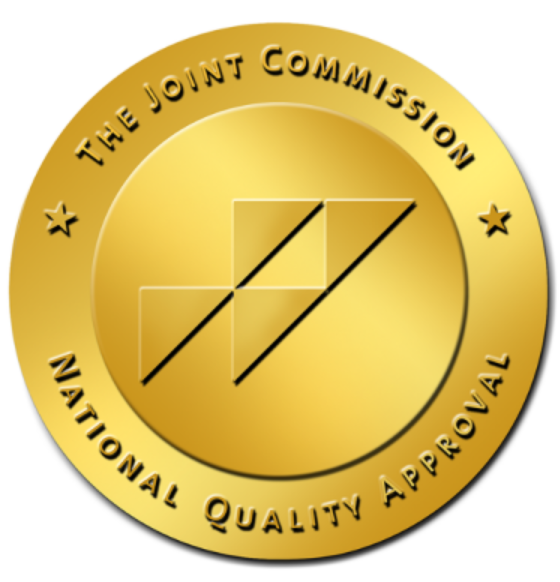Hallucinogens
What Are Hallucinogens?
Hallucinogens are a classification of drugs that cause the user to experience an altered perception of reality. The hallucinations or visual disturbances often caused by these drugs are where they get their name from. Hallucinogens drugs can be split into two subcategories as well: classic hallucinogens and dissociative drugs. Both subcategories can cause altered perceptions and hallucinations but dissociative drugs often cause the user to feel out of their body while high.
Hallucinogens can be natural or man-made and many are still not fully understood by the scientific community. Most hallucinogenic drugs are either illegal or highly regulated and while some users do not see them to be as serious as many other illegal drugs, they are still habit-forming and potentially dangerous when abused.
Commonly Abused Hallucinogens
When ingested psilocybin causes hallucinogenic effects similar to the drug LSD. Mushrooms containing psilocybin can either be dried out or eaten raw to experience their effects. People sometimes use these mushrooms to brew a potent tea that can be ingested to get high as well.
Mushrooms can have a similar effect on the human brain has doses of marijuana; it often causes a sensation of relaxation in the user although can also lead to paranoia or anxiety when a bad reaction occurs. Psilocybin can also cause users to experience an intense feeling of meditation or introspection, which leads many to feel that hallucinogens have spiritual purposes.
LSD can be distributed as either a white powder or clear liquid. The liquid form is often used to soak squares of paper that users will then place on their tongues to absorb the compound. When it was first introduced in the 1960s, many felt that LSD had the potential to help in the therapeutic community. However, those beliefs have been mostly debunked since.
LSD can cause increased blood pressure and body temperature. Along with the altered perceptions, users can experience a sense of dizziness and numbness after taking LSD. The effects of LSD on the brain often cause a person to experience impulsive behavior and sudden mood swings while high.
Like all dissociative drugs, PCP creates an “out of body” experience for the user. When combined with other drugs this often makes the high feel more intense than normal. In higher doses, PCP can also cause hallucinations.
PCP is often sold in powder form, although crystalized and liquid forms of the chemical exist as well. When used by itself PCP can either be snorted, injected, smoked, or swallowed, while it usually just sprinkled over other substances when people want to combine it with another drug.
Throughout history, South American cultures centered around the Amazon have used Ayahuasca in religious ceremonies or for healing purposes. The effects of Ayahuasca cause an altered sense of space and time.
As the hallucinogenic drug found in Ayahuasca, DMT when taken alone has the same effects. Users can experience hallucinations, altered senses of time and reality, and euphoria. DMT is also powerful to cause what are referred to as “true hallucinations” which are defined as hallucinations that are a complete departure from any sense of reality.
The cactus has circular nodules at its top that are cut out and either chewed on or dried out in order to experience their effects. To the bitter taste of the plant, a tea is often brewed for several hours using the cactus to create a potent drink with the same effects. Similarly to ayahuasca, peyote is often used in traditional religious ceremonies in some cultures.
While some people suggest mescaline is helpful in treating depression and alcoholism, the United States government still considers it to be a Schedule I drug, meaning they do not recognize any medicinal purposes of it. People who ingest peyote can experience a variety of effects based on how their body processes it. Symptoms include an altered sense of body, loss of time, vivid mental images, an decreased perception of reality.
The Dangers of Hallucinogens
While hallucinogenic drugs are often not as strongly stigmatized as other Schedule I drugs, they can be just as dangerous at times. Hallucinogens are still habit forming drugs, meaning that a person will build a tolerance and need more each time to experience their effects. Effects of withdrawal can also potentially take a physical and mental toll on someone attempting to quit the use of hallucinogenic drugs.
Research still does not know all of the long term effects that heavy usage of hallucinogens has on a person’s body. Two disorders we do understand can develop are persistent psychosis and Hallucinogen Persisting Perception Disorder, or HPPD. Persistent psychosis can cause long term paranoia and mood swings in a person who has abused hallucinogenic drugs, while HPPD can cause hallucinations and visual disturbances in someone even when they are sober.
The ability to alter perceptions of reality are perhaps the most dangerous aspects of hallucinogens. Someone high on hallucinogens often loses the ability to think rationally and interpret accurately the world around them. This, combined with increased levels of impulsive behavior, can lead to occurrences of either self-harm or danger to others due to psychosis.
Hallucinogen Addiction Treatment
While the dangers of other drugs are often well documented, the dangers associated with an addiction to hallucinogenic drugs stems from the fact that there is still so much unknown about how they affect a person’s brain long term. While there are no government-approved medications to help treat hallucinogen addiction, behavioral therapy has shown promising results.
At Create Recovery Los Angeles, we offer a Cognitive Behavioral Therapy program that can help treat the underlying causes of addiction disorders. We are here to help those who are suffering from addiction or mental health disorders. Please call (855)-518-0222 to learn more.





